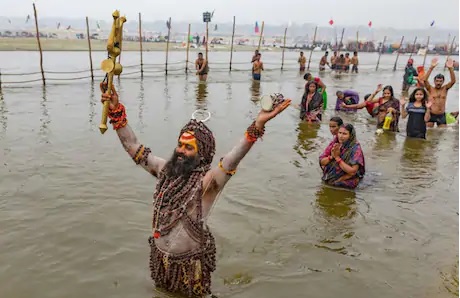Nagasaki Day 2024: Date, Facts, Significance, History
Nagasaki Day is observed every year on August 9 to remind people of the destruction caused by the atomic bombings on the Japanese city of Nagasaki.

The year 2024 marks the 79th anniversary of the incident and will pay tribute to all those who lost their lives in the attack or were left alive to die slowly in the horrible nuclear radiation. The day condemns the use of nuclear power and is observed all over the globe.
Nagasaki Day Date
Below mentioned are the upcoming dates for Nagasaki Day 2024 for the next 4 years.
| Event | Date | Day |
| Nagasaki Day 2024 | August 9, 2024 | Friday |
| Nagasaki Day 2025 | August 9, 2025 | Saturday |
| Nagasaki Day 2026 | August 9, 2026 | Sunday |
| Nagasaki Day 2027 | August 9, 2027 | Monday |
Nagasaki Day Overview
| Event | Nagasaki Day |
| Date | August 9, 2023 |
| Day | Friday |
| Declared by | Japan |
| Purpose | To raise awareness about the devastating power of nuclear bombs and remember the victims of nuclear bomb attacks in Nagasaki. |
Facts about Atomic Bombing & Nagasaki Day
Here are some lesser-known facts about the atomic bombing on Nagasaki:
- Till now, Japan is the only country to be attacked by nuclear bombs.
- Nagasaki was not originally the target for second nuclear attack and was going to be a third target.
- In place of Nagasaki, Kokura was to be attacked but due to bad weather conditions and low visibility, the city was spared.
- The total number of causalities in Nagasaki after the bomb dropping was around 64000.
- It is believed that there is still some of the radiation left from the attack in Nagasaki but has no effect on human body.
- The bomb dropped on Nagasaki was more powerful than the one dropped at Hiroshima but the effect was less comparatively.
- Effect of nuclear weapon was less on Nagasaki due to its terrain and smaller size as compared to Hiroshima.
- Post war, Nagasaki has developed to become a spiritual centre for movements to ban nuclear weapons.
Significance of Nagasaki Day
Nagasaki Day marks the anniversary of the atomic bombings that took place in Nagasaki on August 9, 1945. After Hiroshima, Nagasaki was the second Japanese city to be attacked by nuclear weapon.
As a result, thousands of people died and thousand others were fatally injured. Nagasaki Day is observed to remind people of this horrific tragedy and to discourage the use of nuclear weapons leading to complete elimination.
History of Nagasaki Day Observation
On August 9, 1945, an American bomber dropped an atomic bomb over Nagasaki killing around 40,000 people instantly. Similar events had taken place three days before on August 6, when a bomber dropped an atomic bomb on the city of Hiroshima killing over 80000 people. These two consecutive nuclear attacks on Japan forced it to surrender unconditionally in the world war on August 15 1945.
Japan started the observation of Nagasaki Day every year on August 9 to raise awareness about the devastating power of the nuclear bombs. The day is to remind the world about the pain and suffering of victims of the attack and honor those who lost their lives.
Observation of Nagasaki Day
Nagasaki Day is observed by people all around the globe to honor the innocents who lost their lives in the attack. Events and seminars are conducted by many organization, national and local, to teach people about the nuclear weapons and urge nations to completely eliminate their usage. People from all over the world pay their homage to the nuclear attack victims.
To observe this day, you can familiarize yourself more and more about the nuclear weapons and their atrocious effects. You can watch movies made on the atomic attacks to learn more about this day and also teach others about the negative effects of nuclear weapons.
FAQs
Little Boy and Fat Man were the codenames given to the two nuclear bombs dropped on Nagasaki and Nagasaki respectively. The names were given because of their designs.
Although the nuclear attacks took place in Japan but their devastating effects shook the whole world demanding every country to eliminate nuclear power. Thus Nagasaki Day became a global observance.
Kyoto and Hiroshima were the primary targets of the atomic bombings. However, Kyoto was spared for its cultural importance and in its place Kokura was chosen as the second site. Kokura was later replaced by Nagasaki at the end moment due to low visibility and a bad weather.




